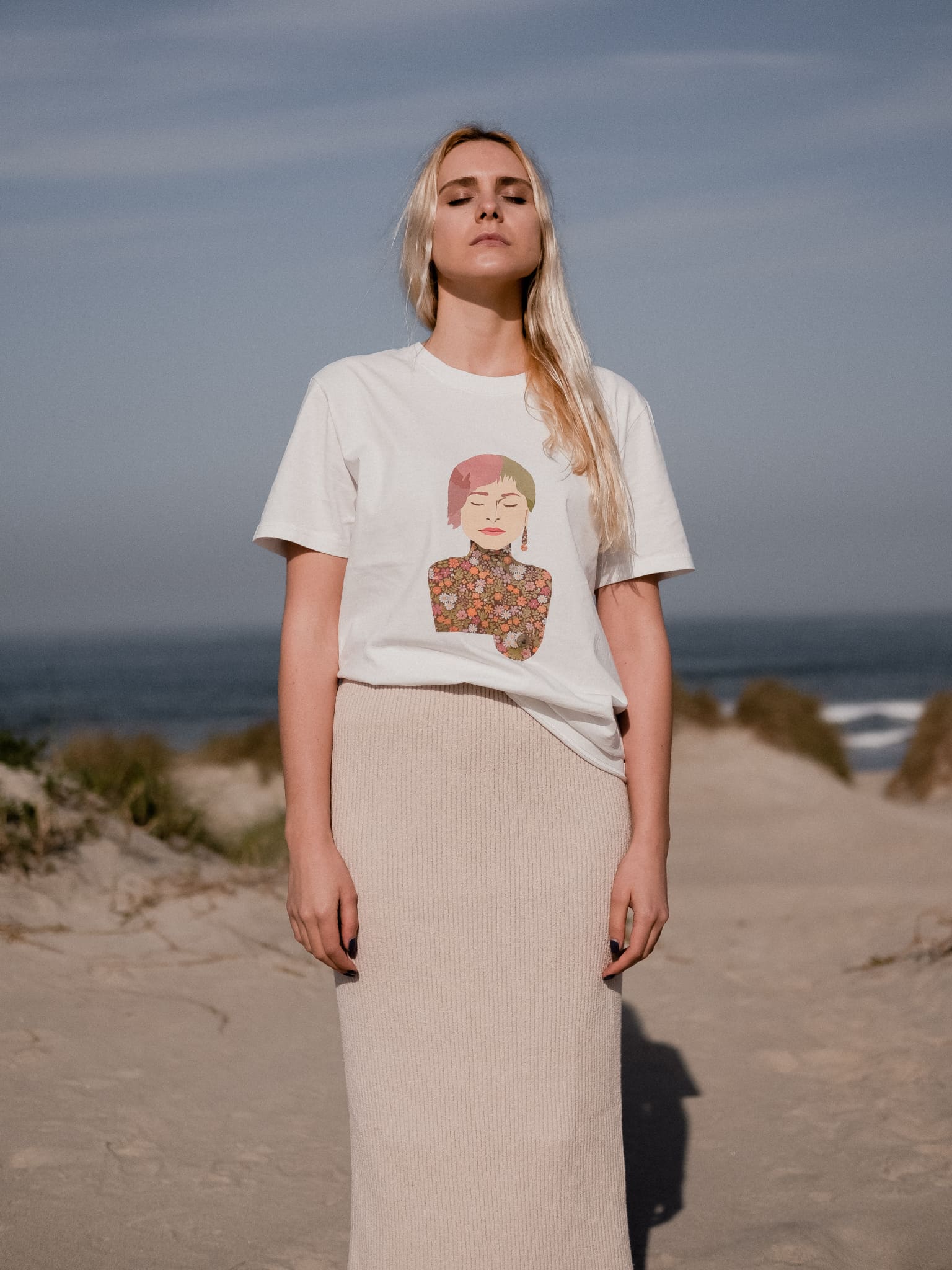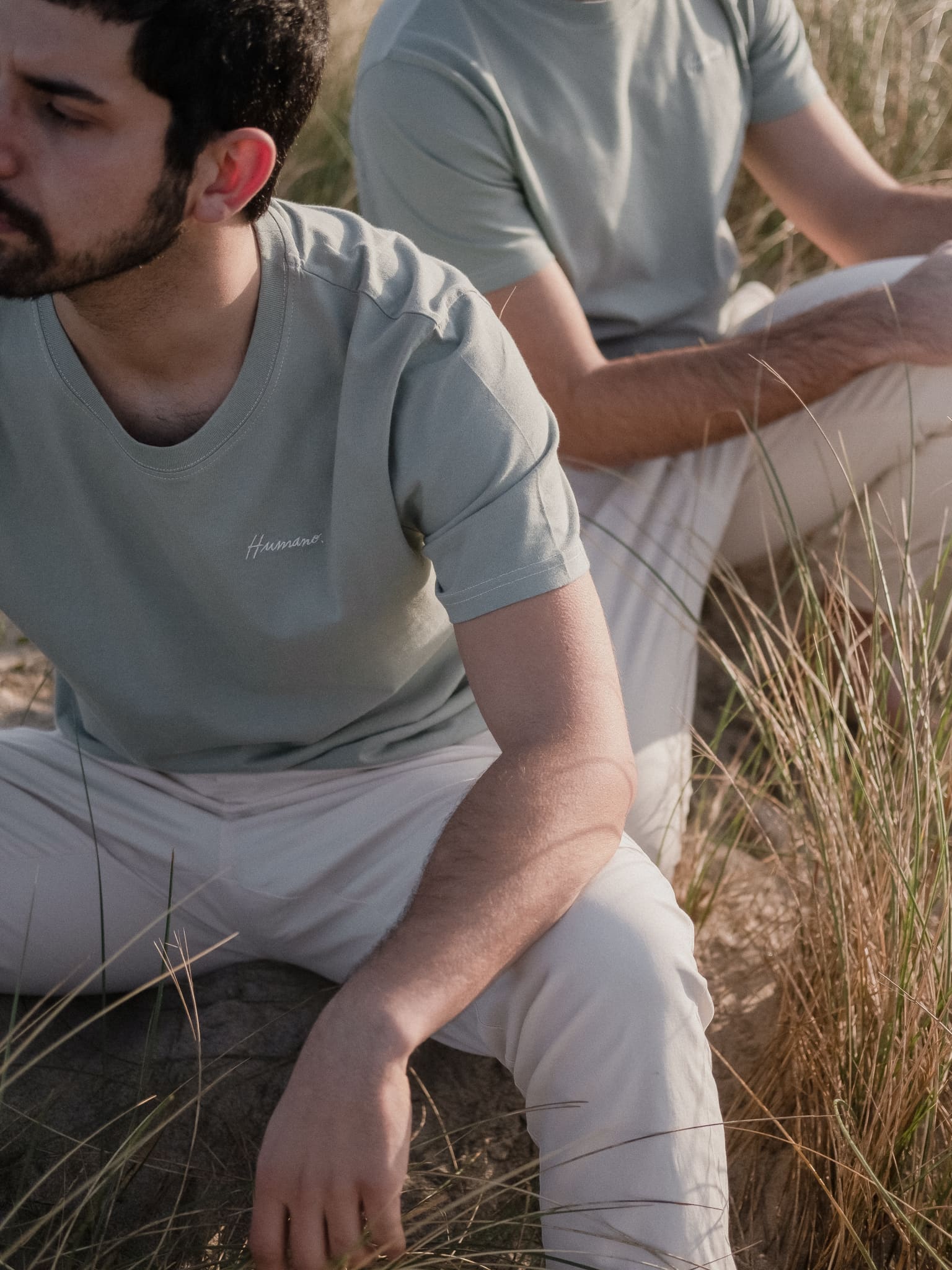WHAT WE'RE ALL ABOUT
Let’s just start by what we’re not. We’re not flawless, we’re not a sustainable brand and we’re not a finished product. Humano is not perfect, and it will probably never be. We’ll fail, we’ll learn and we’ll evolve. We are focused on taking the values we believe in as the guiding principles to our own business. However, things aren’t always ”black and white”. After all, this company is run by real people, with their own complexities, struggles and doubts. We don’t have all the answers. So instead, we guide ourselves by asking, day by day, a simple question: ”Is this the best we can do at this given moment?”
Humano is so much more than just a brand. It is an untold story of a friend, a neighbor or a stranger. The goal is to create a community that celebrates the wonderful complexities that makes us all human, by turning real stories of real people into unique pieces that you can wear. We do this by collaborating with artists that turn each story into original designs. By wearing Humano, we want you not only to feel great about yourself, but also to be a reminder that there’s an incredible amount of inspiring and undiscovered stories around you. Who knows what stories the person next to you might have to tell?




The Story
It all started with Epoch, a project created with the purpose of documenting and sharing real stories of real people. Ironically, in a time where we have every tool available to make us connected, it seems like we’re more and more disconnected from each other. Epoch exists to challenge that. People can’t be defined by a single thought, saying or action. By reducing someone to a word or label, we’re discounting all that is complex and unique about them. Instead, everyone is on their own journey, fighting a battle that we really know nothing about. Epoch tries to share a glimpse of that. Through the form of a short documentary, each film explores a unique and intimate story of a specific person. The idea is simply letting the stories speak for themselves, nothing else. Encouraging more listening and less talking.
As the project matured, it became apparent that it could evolve into something more. The mindset/goal was really simple:
- to become a long-term sustainable project;
- to keep every story free and available to anyone in the world, independent from any paywall or adverting.
- to be a vehicle for a positive impact/change in the world.